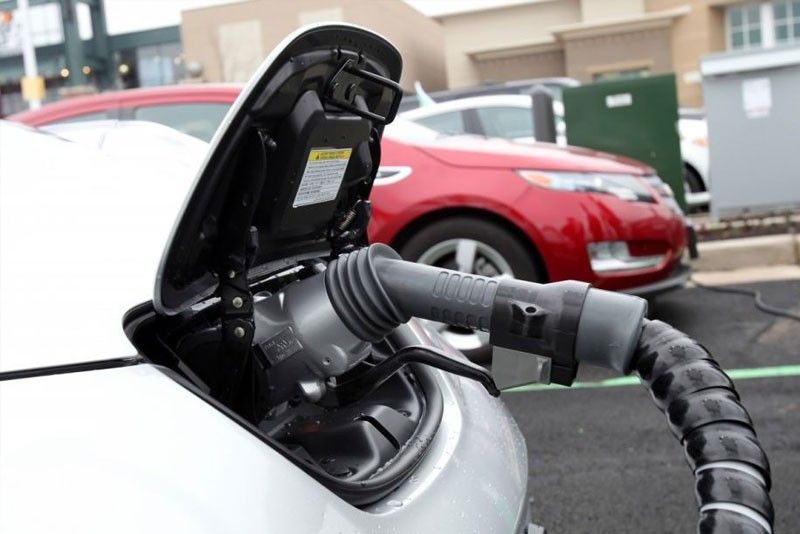NEDA Board endorses new EO reducing tariffs on e-vehicles

MANILA, Philippines — The National Economic and Development Authority (NEDA) Board approved on Thursday an executive order that will modify the tariffs imposed on electric vehicles (EV), one that could quicken the proliferation of EVs within the Philippines.
If President Ferdinand Marcos Jr. signs the EO, this will modify tariffs on certain EVs, which include passenger cars, buses, vans, trucks, and even tricycles, scooters and bicycles. The order would also cover parts and components.
The NEDA said the EO will temporarily reduce the Most Favoured Nation (MFN) tariff rates to zero for five years on completely built-up units of certain EVs. However, the order will not cover hybrid-type EVs.
With the NEDA’s endorsement, the statement noted this would encourage consumers to purchase EVs, which the national government hoped would reduce the public’s dependence on expensive, imported fuel.
NEDA Secretary Arsenio Balisacan clarified in a press briefing on Thursday that if the EO is passed it would cover tariffs for EVs that are not yet locally-produced.
“We’re reducing for those vehicles not yet locally-produced, the quantity of those vehicles is not that big. Because we want to encourage adoption of EVs,” he said.
Balisacan shrugged the question of whether the EO would facilitate the phase-out of diesel-powered jeepneys, but he said this would make “prices become more competitive.”
“Eventually as these EVs become more popular, as prices become more competitive, eventually people will switch to EVs,” Balisacan said.
Likewise, tariffs on parts and components of EVs will be reduced to 1% from 5% for five years.
The tariff modifications will be reviewed after a year of implementation to assess the development of the EV industry.
The order came after the NEDA board’s first meeting with Pres. Marcos Jr.
The trade department noted in a 2020 report that it already created an EV manufacturing roadmap. The plan penciled in incentives that will spur investments into the EV sector, which include exemptions of excise duty and value-added tax for raw materials and manufacturing equipment aside from removing tariffs.
PPPs, 6 more projects
The NEDA also released its guidelines on processing public-private partnership proposals. The guidelines are now aligned with the revised 2022 implementing rules and regulations of the Build-Operate-Transfer law.
According to NEDA, these new guidelines will “harmonize” the NEDA board and the Investment Coordination Committee’s review and approval of projects. These would cover preparation and submission of government agencies of PPP projects alongside the joint evaluation of the NEDA Secretariat, the PPP Center, and the finance department.
The NEDA board approved six projects, which include a project bankrolled by official development assistance.
The Philippine Fisheries and Coastal Resiliency project, proposed by the agriculture department is targeted towards fortifying the resilience of communities and ecosystems in fisheries management areas. This would see the construction of support facilities and fisheries infrastructure among others.
The first phase of the Maritime Safety Capability Improvement project of the Department of Transportation will see the purchase of 10 multi-role response vessels to improve the Philippine Coast Guard’s response capability.
Another DOTr project was approved by the NEDA board, which will see the construction of the Manila air traffic management automation system and a building to house the program in Pasay City. The project would also install communications and surveillance equipment in 10 radar sites.
The Department of Public Works and Highways’ Samar Pacific Coastal Road project also secured the board’s approval. The project would facilitate the construction of 11.3 kilometers of road in the unpaved portion of the Samar Pacific Coastal Road and three bridge with a total length of 261 linear meters.
Another DPWH project, targeted at climate change adaptation measures in low-lying areas of Pampanga Bay, received the board’s greenlight. The DPWH requested for change in the scope of work, cost increases, and reallocation of contingency costs.
The Philippine Competition Commission’s capacity building project also secured NEDA’s approval. The project will strengthen the institutional capacity of the PCC and other agencies with regard competition-related mandates to improve enforcement of the Philippine Competition Act.
- Latest
- Trending





























